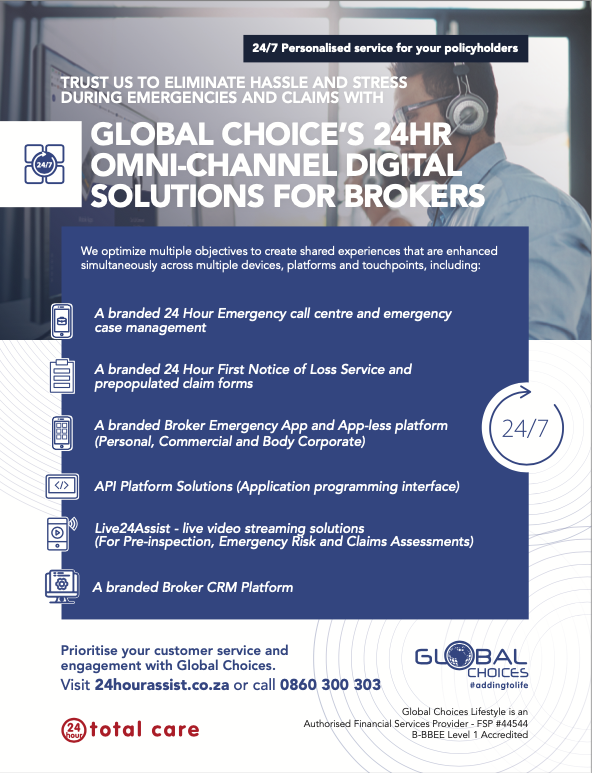Tony van Niekerk discussed offshore investments with Brandon Naidoo, Liberty’s head specialist for retail investment propositions. The conversation revolved around the viability and importance of investing offshore, especially considering the current state of the South African economy and the depreciating value of the rand.
Brandon emphasized that offshore investment is not just about currency fluctuations, but also about diversification and accessing a broader range of investment opportunities. He highlighted that relying solely on the South African market goes against the concept of diversification and investing only in one emerging market country like South Africa, whose GDP makes up only 0.4% of the global GDP, may not be wise.

Brandon further explained that the opportunity set on the Johannesburg Stock Exchange (JSE), the biggest stock exchange in Africa, has reduced significantly over the past 23 years, with the number of listed companies decreasing from over 600 in 2000 to around 310 currently. He also pointed out that the dominant sectors on the JSE are financial services, resources, and mining, whereas globally, sectors like clean energy, robotics, artificial intelligence, and semiconductors are set to dominate in the coming decades.
Regarding currency, Brandon acknowledged that it is an emotional factor in investment decisions, but he also highlighted that the stock market and the economy do not always move hand in hand. Many South African companies already earn a sizeable portion of their earnings from offshore operations, mitigating some of the currency risks.
Role of the advisor – As far as advisers are concerned and how they should work through this environment themselves, to make sure that they understand and know how to diversify offshore in a safe way for their clients, Brandon stated that there are a few different layers to this. The first level is understanding what the client is trying to achieve and what their family dynamics are, which is going to help you to decide which instrument is best. We keep talking about investing offshore, whether it is directly or indirectly, it needs to happen via an investment instrument. So, do you go offshore via a unit trust? Do you go offshore via an endowment? Now these are questions that will be answered by the advisor, but it is only after consultation with the client based on their needs.
He used a few examples to explain this. According to him, the basic difference between a unit trust and an endowment wrapper or a life wrapper is that with a unit trust you are going to pay tax as a client in your own hands. So you will need to declare all the interest that you earn, all the capital gains that you make, and you will pay tax on this in your own hands, whereas with the life wrapper or with the endowment, it is the company or the financial services provider that pays tax according to what is called the five fund taxation approach. The tax is taken care of
for the investor, who receives the proceeds net of tax. Some people say tax free, which is incorrect. It is net of tax because there is tax being paid. It is just being paid by the financial services provider on investor returns rather than paid by the investor directly.
He stressed that tax is one component and access another. As an advisor, you speak to the client and realize that this client needs access to the funds within the next year or two, then suddenly the decision is between unit trusts or a collective investment scheme. According to Brandon, the ability to nominate a beneficiary could be a further consideration, because you will be able to do that with an endowment, but you will not be able to do that on the side of the unit trust.

GLOBAL CHOICE’S 24HR
OMNI-CHANNEL DIGITAL
SOLUTIONS FOR BROKERS.
We optimize multiple objectives to create shared experiences that are enhanced simultaneously across multiple devices, platforms and touchpoints.
Prioritise your customer service and engagement with Global Choices.
Global Choices Lifestyle is an
AuthorisedFinancial Services Provider – FSP #44544
There are a few extra layers specifically for business owners, said Brandon. They tend to prefer the endowment because of creditor protection. Section 63 of the long-term insurance act talks to creditor protection if your investments have been in place for a period of greater than three years, and beneficiaries are spousal children, creditor protection can come into play as well.
He continued: “State duty is going to be payable either way. So, whether you decide to go via a unit trust or via an endowment, a state duty is payable. But I want to, at this point, bring your attention to when you are going offshore. When you invest in a collective investment scheme offshore, there is something called Situs”
He explained that Situs is essentially a state duty of the country that your investment is housed in. He used the example of the UK, where Situs is levied at a level of 40% on values that exceed 325,000 pounds.
There is a rollover benefit where if it is yourself and your spouse, you can roll over. So, you only start paying from double that amount of 650,000 pounds. But Situs is levied at 40% and in South Africa we are more familiar with the 20% estate duty and 25% if it is greater than 30 million.
Brandon mentioned that the next decision lies in whether the investment is indirect or direct? If direct is the option, he recommends hard currency, US dollar, as the investment of choice. Once you have made that decision you determine whether you go off via a collective investment scheme or via a life wrapper? According to him, these types of questions will help the adviser decide. The next stage in the process is, assuming you have gone the endowment route, which is quite popular when you are going offshore in hard currency, is deciding which funds to invest in?
Besides the above, he highlighted the challenges of navigating regulations related to the various investment options and emphasized the importance of working with an accredited financial advisor who will explain different routes for offshore investing, including indirect investing through financial service providers and direct investing in hard currency. He mentioned that, while interest rates in offshore currencies have improved, they may not be as attractive to South African investors compared to local investments, noting that the role of the financial advisor is crucial in understanding
clients’ unique circumstances and goals, and helping them choose the right investment instrument for their needs, such as unit trusts or endowments.
Knowledge is key – In conclusion Brandon emphasized that financial advisors need access to knowledge, advice, and expertise to make informed decisions about offshore investments, as it is impossible to have all the knowledge about different jurisdictions. From a Liberty perspective, they do provide support structures, such as investment specialists, legal marketing specialists, and international fiduciary services, within their “offshore ecosystem” to assist advisors in providing suitable advice to clients.
Liberty’s flagship products, the Liberty Offshore Investment Plan and Liberty Global Direct, are options for advisors to look at as the company’s Invest team conducts due diligence on fund managers to help advisors make informed decisions about suitable funds for their clients’ needs.

